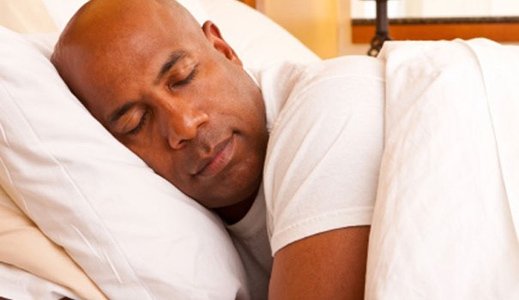There are many proven— and some unproven— facts about sleep deprivation and the short and long-term effects it could have.
While women who fight or otherwise are not able to catch some zzzzzz’s can fall prey to troubling consequences such as diabetes, obesity and irritability, men appear to have even more to worry about, according to numerous health care officials and experts.
A recent study performed at the University of Chicago noted that men who lack quality sleep could find themselves with more flab on their bellies and in their faces. Another study released on January 11, 2014 by Medical Daily, which reports on news in the health industry, revealed that men who go even a single night without sleep may be at greater risk for brain damage. Medical News Today noted that a lack of sleep also leaves men a lot hungrier than normal.
Perhaps even more disconcerting for some, a separate study conducted in Denmark last year, found that men who slept poorly had lower sperm counts and fewer sperm that had formed correctly, compared with men who slept better.
“Lack of sleep is associated with a huge spectrum of health issues including overweight, cardiovascular health, and mental health such as depression and anxiety,” said Ramani Durvasula, a licensed clinical psychologist and a professor of psychology at California State University Los Angeles.
“A lack of sleep does not cause these problems, but it can exacerbate them or make them harder to cope with. We also know that lack of sleep is associated with secretion of stress hormones such as glucocorticoids, which can also impact inflammatory processes and the immune function,” Durvasula said.
Earlier this month, Alan Derickson, a professor of labor and employment relations and history at Penn State, noted that Americans, especially men, have learned to equate sleeping with laziness, often at the expense of their health and safety.
Pairing masculinity with avoiding sleep became even more pronounced as the nation entered the industrial age, Derickson wrote in the University of Pennsylvania Press.
Derickson said that many modern work factories could not easily be shut down, requiring people to operate machinery 24 hours a day.
“Besides living in a dysfunctional somnolent state, sleep-deprived workers are known or suspected to be at greater risk of several diseases,” Derickson said.
However, as America modernized, the attack on sleep did not ease and in fact continues today, he said.
“The race for status and riches has continued to fascinate masses of spectators who have eagerly consumed television programs, movies, books and Internet offering featuring overworking, under sleeping entrepreneurs,” Derickson said.
As medical residents, for example, doctors train by regularly working long shifts. This can put patients at risk of not receiving the correct treatment. Long-haul truck drivers, who tout their ability to drive many hours as a badge of honor, may also jeopardize other motorists, the researcher said.
“Then, this doesn’t become just an issue of the health of a doctor, or a truck driver,” Derickson said. “This can affect the health and safety of everyone.”
Officials at the Centers for Disease Control and Prevention (CDC) in Atlanta recommend seven to nine hours of sleep each night. However, officials said at least one third of adults in the country sleep less than 7 hours each night.
Alarmingly, a study released in August by the CDC, found that four percent of Americans – or 9 million residents – use sleeping pills or sedatives to help them to sleep.
“Humans are the only species that deprives itself of sleep,” Derickson said. “You don’t see a cow taking sedatives to get extra sleep.”
The need for sleep is especially so for couples because a lack of sleep can also cause strain in a marriage, as it often brings about increased irritability toward the husband and wife and leads to arguments, said Ancy Lewis, a sleep coach and licensed clinical social worker with “Sleeping Little Dreamers,” a New York-based firm that assists individuals with shuteye issues.
“In general, prior to becoming parents most adults are not getting enough sleep,” Lewis said. “The CDC considers insufficient sleep a public health epidemic that can lead to diabetes, mood issues, and trouble carrying out cognitive functioning.”
